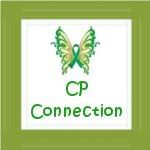I recently had the opportunity to have an in-depth conversation with a friend of mine who also lives with a disability. As we were talking, I realized something very unique was taking place…we actually could relate to one another’s experiences. I found it refreshing, nourishing even to find someone else who could really understand on a personal level what it is like to struggle with a physical disability. Then I began to wonder: Why was this experience so rare? On the reverse, why is so challenging to articulate my experiences to people who have able bodies in a way that resonates?
 |
| How do we bridge the gap? |
Living with a disability is not a largely shared experience. According to the U.S. Census Bureau, just over 18% of Americans report having a disability. Only about 2% of the populations of those who have disabilities fall into my age range of 25-44. (No wonder it’s hard to find someone to talk to!) You can read the full report here: http://www.census.gov/prod/2008pubs/p70-117.pdf.
Living with a disability often affects people in profound ways that are evolving and difficult to describe. I find that I often have to spend hours in deep thought over my life’s experiences before I can come up with a simile or a metaphor that effectively communicates my thoughts, feelings, and experiences of living with cerebral palsy. Part of the challenge, I believe, is that having a disability can affect multiple areas of your life, be deeply personal, and continually evolving—even if your symptoms remain unchanged. As a child, I was mainly concerned with fitting in with my friends, managing fatigue, and learning how to drive. I struggled with my self-esteem and was looking for my niche in the world. As a young woman, I have many friends and a driver’s license. I am finding an increasing sense of identity in my profession. I still struggle with my self-esteem from time to time (Let’s be honest, who doesn’t?), but I find myself wondering more about the possibilities and challenges of marriage and family. I imagine my focus will shift again as I continue to age.
So much of the struggle of living with a physical disability is internal. As I was talking with my friend, it struck me that perhaps the biggest challenges we will face in life will not be physical—they will be emotional and spiritual. It’s not so much about struggling to walk up and down stairs, needing to ask for help to accomplish everyday tasks, or facing disappointing physical limitations as much as it is the person you become in the midst of the challenges you face. These trials can produce in people qualities that are not always easily seen: shame, anger, discouragement, humility, courage, perseverance, hope.
Questions to Consider:
For those of you who have able bodies: What do you find most challenging to understand about the experience of living with a disability?
For those of you who live with a disability: What do you find the most challenging about relating to others about your experiences?
For everyone: How can we bridge the gap?
For fun: This movie clip was about the best scene I could think of which illustrates what it's like to be misunderstood. Gotta love Milton!
Picture Source: http://www.mirazomai.com/index.php?option=com_content&view=article&id=165%3Asociodrama-book&lang=en

So well written. Thank you for your perspective. I find that as the Mom of two boys with CP, the struggle for me is ALSO mostly internal. Thank you for voicing it so beautifully!
ReplyDeleteI agree with you that the struggle is more spiritual and emotional - even as the parent. I hopped from the CP Connection today.
ReplyDeleteI always love your posts for CP connection! Thanks for joining! And you bring up some great questions and thoughts. I am intrigued by your growing up, and with that little paragraph I have so much I would like to ask you!
ReplyDeleteWould you consider doing a guest post for my blog? I think adults with disabilities have much to teach us not only as parents, but simply as human beings. the fact that we do not recognize what our disabilities are does not mean we do not have them :)